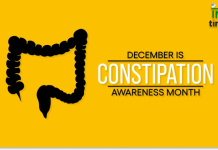
Cancer is a life-threatening disease that affects millions of people worldwide, posing a significant burden on public health systems. It is one of the leading causes of death globally, responsible for millions of deaths annually. With the rapid rise in cancer cases, awareness and early detection are crucial to controlling the disease. National Cancer Awareness Day is an annual event in India, observed on November 7th, aimed at raising awareness about cancer, educating the public about early detection, and encouraging people to adopt healthier lifestyles to reduce the risk of cancer.
The day plays a vital role in highlighting the need for timely diagnosis and treatment, especially in a country like India where healthcare accessibility and cancer awareness still face challenges. This article explores the history, significance, types of cancers, preventive measures, and the role of awareness in combating this deadly disease.
The History of National Cancer Awareness Day
National Cancer Awareness Day was first announced by the Ministry of Health and Family Welfare, Government of India, in 2014. It was established in honor of the renowned Indian scientist Dr. Har Gobind Khorana, who won the Nobel Prize in Physiology in 1968 for his contributions to understanding the DNA structure. The day is observed to create a unified effort across the country to enhance cancer literacy and encourage individuals to go for regular health screenings.
The choice of November 7th for this day is significant because it coincides with the birth anniversary of Marie Curie, the physicist and chemist whose groundbreaking research on radioactivity laid the foundation for the development of radiotherapy in cancer treatment. Thus, National Cancer Awareness Day is a tribute to the relentless efforts of scientific pioneers and a call for the modern population to take proactive steps in the fight against cancer.
The Significance of Cancer Awareness
Raising cancer awareness is critical because, despite advancements in medical science, cancer remains a growing threat. Late diagnosis, lack of knowledge, and limited access to treatment facilities often lead to fatal outcomes for many patients. This is especially true in developing nations like India, where rural and underprivileged populations struggle to receive timely and effective healthcare services.
Cancer awareness has several essential aspects:
- Early Detection: Most cancers can be treated successfully if detected at an early stage. Awareness programs encourage individuals to go for regular check-ups, especially for cancers like breast cancer, cervical cancer, and oral cancer, which can often be caught early through screening tests.
- Prevention: Lifestyle changes such as quitting smoking, reducing alcohol intake, maintaining a healthy weight, and increasing physical activity can prevent a significant percentage of cancer cases. Awareness programs educate people on these risk factors and help them adopt healthier lifestyles.
- Access to Treatment: Cancer awareness also highlights the importance of providing affordable and accessible treatment options. Many people are unaware of the government programs and initiatives that offer cancer treatment at subsidized rates or even for free. Awareness days like this serve as a platform to inform people about these resources.
- Reducing Stigma: In many societies, a cancer diagnosis is often met with fear and stigma, which prevents individuals from seeking timely treatment. National Cancer Awareness Day aims to reduce this stigma by openly discussing the disease, its treatment, and the chances of survival, fostering a more supportive environment for cancer patients.
Types of Cancers and Their Prevalence in India
Cancer is not a single disease but a collection of related diseases that affect different parts of the body. In India, the most common types of cancers include:
- Breast Cancer: The most common cancer in women in India, breast cancer accounts for a significant percentage of cancer cases in the country. Regular mammograms and self-examinations are crucial in detecting breast cancer at an early stage.
- Cervical Cancer: Cervical cancer is prevalent among Indian women, particularly in rural areas where access to gynecological care is limited. The HPV vaccine is effective in preventing most cases of cervical cancer, yet awareness about this vaccine is still low in many parts of the country.
- Lung Cancer: Lung cancer, primarily caused by tobacco smoking, is the leading cancer in men in India. Awareness programs often focus on the dangers of smoking and second-hand smoke exposure as a way to prevent lung cancer.
- Oral Cancer: High rates of tobacco chewing and smoking in India contribute to the prevalence of oral cancer, especially among men. Public health campaigns often emphasize the importance of quitting tobacco and undergoing regular oral health screenings.
- Colorectal Cancer: Although not as common as other cancers, colorectal cancer is on the rise in India, particularly among the urban population. Early screening, especially for individuals over the age of 50, can significantly reduce the risk of this type of cancer.
Causes and Risk Factors for Cancer
Cancer can be caused by a variety of factors, ranging from genetics to lifestyle choices and environmental exposures. Understanding the risk factors is essential to prevention:
- Tobacco Use: Smoking and chewing tobacco are major causes of cancers, especially lung and oral cancers. Quitting tobacco is one of the most effective ways to reduce cancer risk.
- Diet and Physical Inactivity: A diet high in processed foods, red meats, and sugar, combined with a lack of physical activity, increases the risk of cancers like colorectal, breast, and prostate cancer. A diet rich in fruits, vegetables, lean proteins, and whole grains can help lower the risk.
- Alcohol Consumption: Excessive alcohol intake is linked to several types of cancer, including liver, breast, and esophageal cancer. Reducing alcohol consumption can lower the risk significantly.
- Infections: Certain infections, such as HPV, Hepatitis B, and HIV, can increase the risk of cancer. Vaccinations and early treatment of these infections can help prevent related cancers.
- Radiation Exposure: Prolonged exposure to radiation, whether from medical treatments or environmental sources, can increase the risk of cancer. Limiting unnecessary exposure and using protective measures can reduce the risk.
- Genetics: Some cancers, such as breast and ovarian cancers, can be hereditary. Genetic testing and counseling can help individuals with a family history of cancer make informed decisions about their health.
Prevention and Early Detection
Preventing cancer or detecting it at an early stage greatly improves the chances of successful treatment. Here are some key strategies for prevention and early detection:
- Regular Screenings: Getting screened for cancers such as breast, cervical, and colon cancer can detect the disease before symptoms appear. Women should undergo Pap smears for cervical cancer, while mammograms are essential for detecting breast cancer.
- Vaccinations: Vaccines like the HPV vaccine and the Hepatitis B vaccine are effective in preventing cancers caused by viruses.
- Healthy Diet and Exercise: Eating a balanced diet rich in antioxidants, maintaining a healthy weight, and engaging in regular physical activity can help lower the risk of cancer.
- Avoiding Tobacco and Limiting Alcohol: Quitting smoking and reducing alcohol consumption are two of the most impactful lifestyle changes a person can make to reduce their cancer risk.
- Sun Protection: Skin cancer is another concern, especially in regions with high exposure to sunlight. Wearing sunscreen, protective clothing, and avoiding excessive sun exposure can reduce the risk.
Government Initiatives for Cancer Control
The Indian government has taken several initiatives to combat cancer through awareness, prevention, and treatment programs. Some of the key initiatives include:
- National Cancer Control Programme: Launched by the government, this program aims to reduce the burden of cancer through awareness, early detection, and accessible treatment. It provides financial assistance for cancer treatment to patients from economically disadvantaged backgrounds.
- Ayushman Bharat Scheme: This scheme covers cancer treatment for low-income individuals, ensuring they receive access to necessary healthcare without financial strain.
- National Tobacco Control Programme: This program focuses on reducing the prevalence of tobacco use, which is a major cause of cancer in India.
- Cancer Screening Camps: Across the country, government and non-government organizations conduct cancer screening camps to facilitate early detection, particularly in rural areas where healthcare facilities are scarce.
Also Read : National Cancer Awareness Day 2023: History, Timeline, How To Observe, Facts, Importance of Cancer Awareness Day
How to Promote Cancer Awareness
Promoting cancer awareness is a community effort that involves individuals, healthcare providers, government bodies, and organizations. Here are some ways to promote cancer awareness effectively:
- Education and Campaigns: Conducting educational programs and campaigns in schools, colleges, and communities can spread valuable information about cancer prevention, symptoms, and treatment.
- Social Media: In today’s digital age, social media is a powerful tool for spreading awareness. Sharing infographics, survivor stories, and informative posts on platforms like Facebook, Instagram, and Twitter can reach a wide audience.
- Workplace Initiatives: Companies can organize health workshops, cancer screening programs, and awareness talks to educate employees about the importance of regular health check-ups.
- Engaging Healthcare Providers: Doctors, nurses, and healthcare professionals can play a pivotal role in spreading awareness by educating patients about cancer risk factors, screening procedures, and treatment options.
- Collaborating with NGOs: Non-governmental organizations focused on cancer care can collaborate with public health bodies to organize screening camps, awareness drives, and fundraising events for cancer research and patient support.
India Time Lines
Conclusion
National Cancer Awareness Day is an important step toward controlling the cancer epidemic by encouraging early detection, educating people about prevention strategies, and reducing the stigma associated with cancer. Through collective efforts, communities, governments, and individuals can work together to increase cancer literacy, promote regular screenings, and foster a culture of health consciousness. By prioritizing cancer awareness and prevention,




































Attractive section of content I just stumbled upon your blog and in accession capital to assert that I get actually enjoyed account your blog posts Anyway I will be subscribing to your augment and even I achievement you access consistently fast
seo google